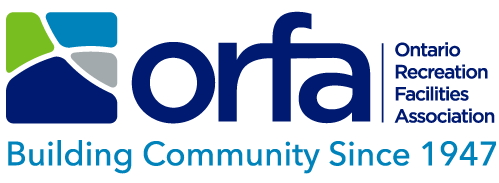Ice Making and Painting Technologies (OLSS)
This online self-study course must be completed in 30 days from enrollment date. Participants will receive an email confirming that they have been enrolled in the online course.
Recommended Prerequisites: Participants that have completed the Basic Arena Refrigeration course or the Advanced Refrigeration Facility Operator and the Ice Maintenance and Equipment Operator (IMEO) course and have one-year, hands-on, artificial ice experience will be better positioned to interpret course materials. It is further recommended that prior to attending this course, participants visit ORFA’s Resource Centre and review materials found in the Arena Ice Operations section applicable to the topic of ice making.
Doug Moore, the world’s first recognized professional “Ice Technician” was the late founder of Jet Ice Ltd. and also the Chief Engineer at Maple Leaf Gardens in Toronto for 30 years. He was a hands-on practitioner that understood the specific day-to-day needs of facility operators. Doug’s contributions set the foundation that has helped give the industry the look and quality of ice that is enjoyed today by athletes in the sports of hockey, curling and figure skating. Doug was an innovator of the arena industry, specializing in ice making technology, speed-painting procedures and openly shared his passion, vast skills and knowledge in this science willingly with facility owners, managers and operators throughout North America. Following in Doug’s commitment is current Jet Ice Vice President, Dave Loverock. Dave, mentored by Doug, continued in the tradition set by the Jet Ice founder by focusing on the same hands-on, frontline proven principles with an eager openness to explore innovation and change. Today, these revolutionary ice making concepts and theories have been implemented in a wide range of community and professional facilities and are considered best practice throughout the ice industry.
Together, the ORFA and Jet Ice Ltd. continue to provide the recognized industry leading standard for professional development in ice-making principles and application techniques for all ice technicians. It is important to note that litigation involving ice condition will almost always use the ORFA Ice Making and Painting Technologies course materials as the proven acceptable industry standard to be met. Knowing and applying these established principles is essential to reducing ice arena risk of liability.
Creating a durable sheet of ice requires a clear understanding of the ice making venue and its mechanical ability and limitations. This environment will include basic yet essential scientific principles surrounding air, water, ice paint, logo materials and HVAC-R systems. Building on the theory gained in the refrigeration classes, this course will enhance the participants’ knowledge, while increasing their operational effectiveness through a clear understanding of proven ice installation principles and techniques. Risk and hazards associated with ice making are also reviewed so that participants are aware of the hidden dangers associated with this task.
Topics include:
Module 1 – A History of Ice
Module 2 – Facility Preparations
Module 3 – The Ice Bowl
Module 4 – Making New Ice
Module 5 – Painting Ice White
Module 6 – Ice Sport Markings
Module 7 – Ice Rink Energy Reduction
Workplace-Specific Training: A reminder is given to facility supervisory staff that to complete the educational process successful participants must return to work and be provided with workplace-specific training.
This course is worth 28 professional development credits towards recertification of any ORFA professional designation

